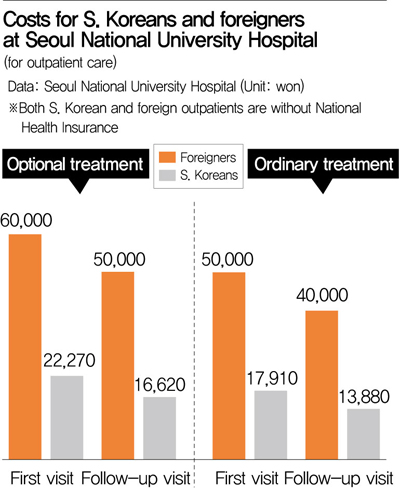 |
Costs for S. Koreans and foreigners at Seoul National University Hospital
|
CONTACT US

World Clock
Friday, April 3, 2015
UAE gov’t audit shows patients getting gouged at Korean hospitals
Subscribe to:
Post Comments (Atom)

 |
Costs for S. Koreans and foreigners at Seoul National University Hospital
|
No comments:
Post a Comment